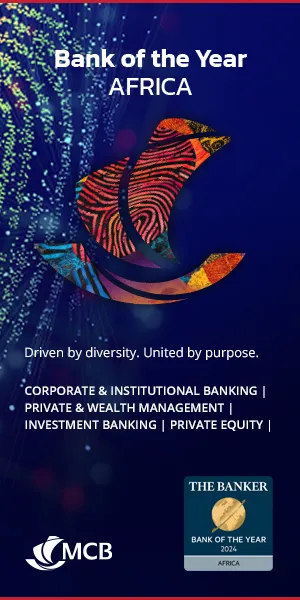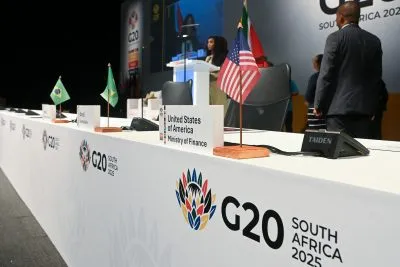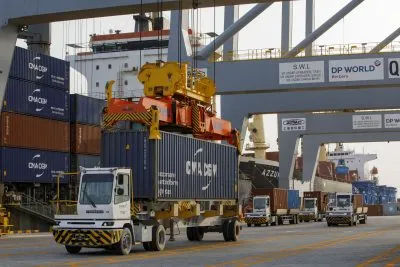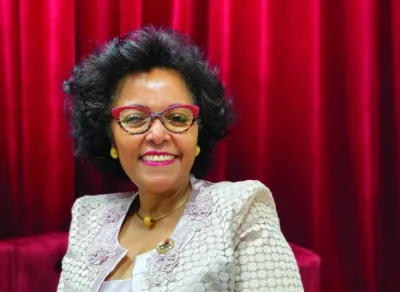One of the most exciting developments in Eastern and Central
Africa is the establishment of the Kigali International Financial Centre in Rwanda’s capital. Once fully operational, it could completely transform the investment landscape in this region of Africa. Its CEO, Nick Barigye, answers our questions.
What is the relationship between the KIFC and Rwanda Finance Limited?
Rwanda Finance Limited is the agency responsible for developing and promoting the Kigali International Financial Centre (KIFC), which is a new IFC whose aim is to transform Rwanda into an international financial destination for investors seeking opportunities across Africa.
With the KIFC, Rwanda is seeking to become a regional hub for international investment. Why is Rwanda pursuing this objective and will the country be well-placed to serve international investors?
First, to give some context, Rwanda is a small landlocked country with a population of 12m people, located in the heart of Africa. As part of our long-term development strategy, the government of Rwanda is aiming to position the country as a gateway to the rest of Africa, taking advantage of our geographic location.
A core aspect of this strategy is the development of the KIFC, which is designed to facilitate international investment and cross-border transactions across the continent.
Rwanda has also taken several other steps towards this goal, such as investing in world-class aviation infrastructure to transform Kigali into an African air travel hub.
Furthermore, through building high-quality conference facilities like the Kigali Convention Centre, Rwanda is establishing itself as a global conference hub and is now ranked second in Africa in business tourism after Cape Town.
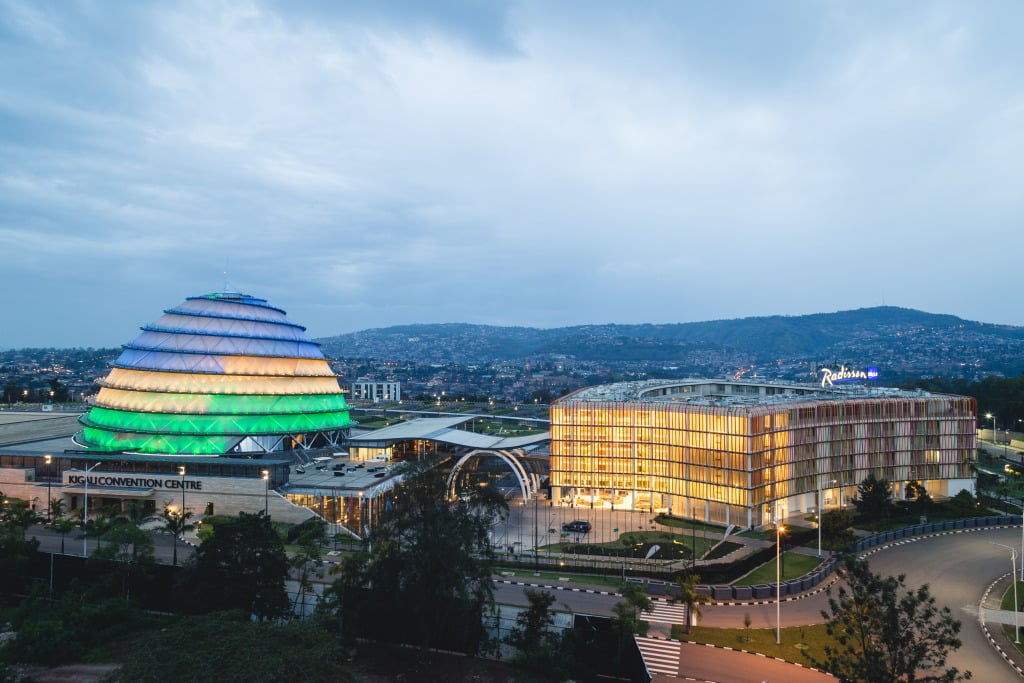
ICT and innovation are critical drivers for growth – as such, Rwanda has invested heavily in digital infrastructure, with 95% 4G coverage across the country.
Rwanda is also a member of three regional economic blocs representing 838m consumers, making the country a perfect springboard to major African markets.
Establishing an international financial centre is a very ambitious undertaking. Why are IFCs important – what special purpose do they serve?
International financial centres such as KIFC provide investors with direct access to multiple markets and a centralised, holding presence for investors to locate all their financial activities.
We’re here to secure a great future for our investors, for the people of Rwanda and for Africa. Every Rwandan has a stake in the success of KIFC and will benefit from the increased prosperity and contribution to GDP that KIFC will provide.
Why do you think Africa needs KIFC? What are its functions?
Africa’s funding needs are greater than ever. This requires African financial centres to support the sourcing of global funding to cover the continent’s investment needs. According to the United Nations Conference on Trade and Development (UNCTAD), Africa’s trade finance gap is estimated at $91bn.
As such, KIFC will be a platform to support international investment and trade in Africa. It provides a conducive ecosystem for the investment and resources needed to drive entrepreneurship and economic growth across industries and communities.
We want to be the jurisdiction for consolidating capital efficiently and deploying it effectively across the continent. We will provide and deliver a financial centre that can expedite these needs.
Furthermore, Africa is fast becoming the epicentre of innovation, and KIFC will offer investors access to emerging opportunities across the continent, with the reassurance that their investments are safe and secure within a pro-business environment, underpinned by the rule of law and serviced by Rwanda’s fast-growing, high-quality financial services industry.
What specific services do you expect KIFC to provide?
It will offer a centralised, holding presence for investors to consolidate their financial activities across Africa, within a safe, fully compliant, transparent environment.
We will diversify the range of financial services offered in Rwanda and build the capacity and expertise of the Rwandan financial sector to service global investors and financial institutions looking to invest in Africa.
More broadly, we are able to service markets East and West; provide an opportunity to invest in a country that is ranked second in the region on the Ease of Doing Business index, something which is also consistently acknowledged by international businesses and business leaders; we can connect investors with Rwanda’s young, bilingual, dynamic population, that is ambitious, educated and ideally placed to service the global financial community.
What measures are you putting in place to attract a steady and significant flow of international investments?
KIFC meets international best practices and provides a pro-business, safe and attractive environment for international investors. We also provide international investors with the following benefits: 0% on capital gains, no WHT on dividends, 3% taxation for passive income, 15% CIT for incentivised activities and no restrictions on capital repatriation.
Rwanda has also already enacted critical laws to establish the regulatory framework for KIFC that ensures it will be a business-friendly and fully compliant jurisdiction for international investors.
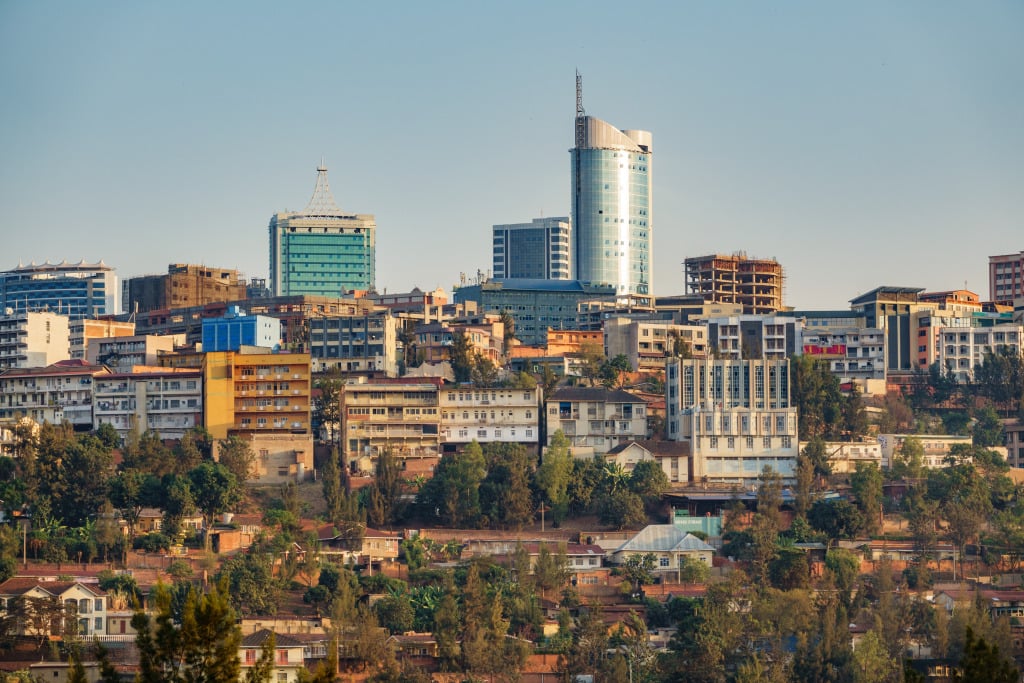
IFCs require a core of highly specialised service providers such as fund and asset managers. How do you expect to attract high calibre personnel? Do you have training programmes for local recruits?
One of our priority sectors is investment funds. Investment funds are the main driver of foreign capital flow into the Rwandan economy and they also have the ability to attract other key services providers required by IFCs such as asset managers, fund managers and trust and corporate service providers (TCSPs).
Over the coming months, our goal is to conclude discussions with other IFCs with a high concentration of TCSPs that are supporting institutions, professionals and high-net-worth individuals to invest and consolidate assets in Africa.
Several educational and professional programmes have already been established, with a key focus on financial compliance. KIFC is supporting professional development programmes for legal professionals, compliance officers and bankers.
Rwanda has also attracted top global universities like Carnegie Mellon University, African Leadership University and the African Institute of Mathematical Sciences to serve Rwandans and Africans at large.
Rwanda is a member of the Sustainable Stock Exchanges Initiative. What does this entail?
The Sustainable Stock Exchanges Initiative (SSEI) is a peer-to-peer learning platform for exploring how exchanges, in collaboration with investors, regulators, and companies, can enhance corporate transparency and performance on environmental, social and corporate governance (ESG) issues.
SSEI is a United Nations project in collaboration with several agencies including UNCTAD and the UN Global Compact and the Rwanda Stock Exchange has been part of the project since 2015.
In a similar vein, KIFC joined the Financial Centres for Sustainability group. What are its aims and objectives?
The Financial Centres for Sustainability (FC4S) is a collective of international financial centres aiming to accelerate the shift to sustainable finance and achieve the goals of the 2015 Paris climate agreement.
How important are cross-border transactions for the KIFC? Is it necessary to harmonise regulatory and judicial regimes across the various geographies?
That’s right, part of KIFC’s mission is to facilitate international investment and cross-border transactions across Africa. In fact, the recently gazetted investment promotion and facilitation law will increase the attractiveness of KIFC for investment vehicles by facilitating cross-border transactions, enabling a company’s capital to be denominated in a foreign currency, and for companies to transact in foreign exchange, without complexity.
What role do you see the KIFC playing in the further consolidation and deepening of the African Continental Free Trade Agreement (AfCFTA)?
The signing of the AfCFTA provides a significant boost for Rwanda and the development of KIFC. IFCs such as ours will also be critical to the success and growth of the free trade area, as Africa moves away from commodity dependence towards a future of greater market integration and sustainable development through Pan-African trade and investment.
The AfCFTA will boost trade and increase the seamless flow of goods across the continent, but it will also assist Rwanda to recruit additional skills and financial expertise to accelerate the development and growth of Rwanda’s financial services sector and the ability of that sector to service the international investors and financial services providers that we are seeking to attract to KIFC.
What difference will the KIFC make to the economic development of Rwanda as well as the countries in the region over the next decade?
With KIFC, Rwanda is seeking to establish and build not only a world-leading financial centre but to strengthen the profile and reputation of the country as an outward-looking, global financial destination that can be a catalyst for finance-led and sustainable growth in both Rwanda and Africa.
To give you some supporting figures: Rwanda aims to increase the financial sector contribution to GDP to 5.2% in 2035 and 11.8% in 2050; with a GDP per capita of $4,036 in 2035, and $12,476 by 2050.
KIFC will play a leading role in delivering Rwanda’s economic reform programme and enable the country’s transition to a financial services hub for pan-African investment, stimulating demand for financial services and providing increased employment opportunities for the Rwandan people.
The emerging investment opportunities across Africa are vast, and it is vital that we work in partnership with other IFCs to the benefit of the entire continent, to facilitate pan-African investment that stimulates economic activity across Africa.
To do so, we will exchange best practices and provide the highest quality financial services to international investors. In Africa, all boats rise together.
Want to continue reading? Subscribe today.
You've read all your free articles for this month! Subscribe now to enjoy full access to our content.
Digital Monthly
£8.00 / month
Receive full unlimited access to our articles, opinions, podcasts and more.
Digital Yearly
£70.00 / year
Our best value offer - save £26 and gain access to all of our digital content for an entire year!

 Sign in with Google
Sign in with Google 
